program
page navigation
keynote speakers

Linus Gisslen
Machine Learning for Game Production
Abstract: Machine Learning has the potential to revolutionize how games are produced and played. SEED is an R&D group at EA that explores how one can bridge the gap between academia and industry with the ultimate goal of bringing state-of-the-art research into games. In this talk you will be presented examples where ML has successfully been brought into games at EA but also where challenges still exist. This presentation aims to give the audience a sense of what is possible and the current limitations of machine learning in game production.
Bio: Linus Gisslén is a technical director at SEED and leading a team that is applying state-of-the-art machine learning techniques to games and game testing. His research interest is mainly in the application of ML in games, but also includes procedural content generation and game testing. Before joining SEED and EA he was a researcher in various groups and has done a postdoc in ML. SEED is an advanced R&D group at Electronic Arts whose purpose is to push the boundaries of game experiences and to drive innovation in how games are created and played in the future.

Una-May O’Reilly
Artificial Adversarial Intelligence
Abstract: “Artificial Adversarial Intelligence” assumes that adversaries can learn from their iterating engagements with one another. I study it in the context of adversarial dynamics that evolve in cyber space. I will describe how machine learning algorithms can model the arms races of cyber attacks and defenses.
Bio: Una-May O’Reilly is the leader of ALFA Group at MIT-CSAIL. An AI and machine learning researcher for 20+ years, she is broadly interested in artificial adversarial intelligence — the notion that competition has complex dynamics due to learning and adaptation signaled by experiential feedback. This interest directs her to the topic of security where she has developed machine learning algorithms that variously consider the arms races of malware, network and model attacks and the uses of adversarial inputs on deep learning models. Her passions are evolutionary computation and programming. This frequently leads her to investigate Genetic Programming. As well, it draws her to investigations of coevolutionary dynamics between populations of cooperative agents or adversaries, in settings as general as cybersecurity and machine learning.
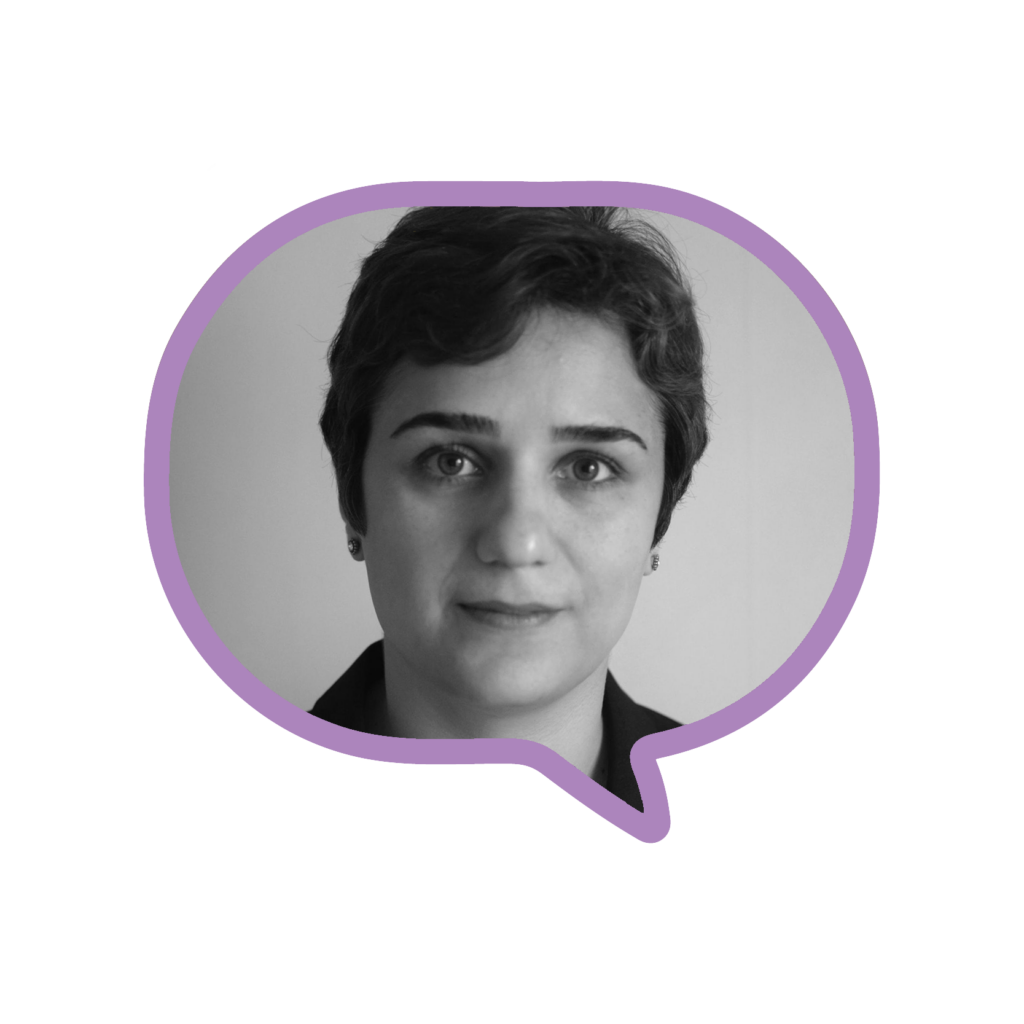
Sahar Asadi
Game Changers: Exploring the Intersection of AI and Game Content
Abstract: This presentation explores AI’s transformative role in automating content production and its impact on game development. Content serves as a foundation for games created at King. Considering the extensive number of players and levels in our games, adopting an AI solution for automating content production becomes essential to create engaging and enjoyable levels consistently. This presentation will primarily focus on recent advancements in AI in validating and generating high-quality content. The practical challenges faced in industrial settings, such as generalization and scaling, will be highlighted, and solutions to address these challenges will be discussed. The presentation will showcase our research in developing playtesting agents that play human-like, as well as the generalization of reinforcement learning for playtesting purposes. This research demonstrates how AI can enhance the quality of the playtesting process. Furthermore, this presentation will discuss how playtesting can extend beyond evaluating content and providing insights into player experience, opening up new possibilities for automation in content production.
Bio: Sahar Asadi is the director of the AI Labs at King, where she leads AI research for mobile games. She has over 11 years of experience conducting applied research in various domains such as user understanding, distributed deep learning, information retrieval, NLP, and product recognition. Her research interests are focused on the scalability and generalization of learning methods, human-in-the-loop content generation, reinforcement learning for game playtesting, recommender systems, and responsible AI. Sahar holds a Ph.D. in Applied Autonomous Sensor Systems from Örebro University and is a co-founder of Women in Data Science, AI & ML Sweden. She actively collaborates with academic research groups and contributes to the scientific community as an author, speaker, reviewer, and conference organizer.

Mark Friend
Anthology of Accessibility: Research, Advocacy & Accessibility Tags
Abstract: In April 2023 the PlayStation Accessibility Tags launched on the PlayStation Store. But a project of that scale didn’t happen overnight. It required robust best practices, effective user testing and involvement from the disabled community, and a company committed to accessibility. In this talk, PlayStation Studios Accessibility Lead Mark Friend will share key learnings on how accessibility processes and culture have evolved over his 10 years at the company, as well as providing an insight into the creation and development of the PlayStation Accessibility Tags.
Bio: Mark is the Accessibility Lead for PlayStation Studios. He has been working in accessibility for over 10 years and is very passionate about making video games accessible for as many players as possible. During his time at PlayStation Studios he has worked on over 60 titles, including Spider-Man Miles Morales, Ratchet & Clank Rift Apart, Horizon Forbidden West, Returnal, and God of War Ragnarök. Mark has also worked with his team to establish the User Research accessibility testing and evaluation services, produced internal accessibility guidelines and documentation, helped launch playstation.com/accessibility and the PlayStation Accessibility Tags, and has run inclusive design workshops with many of PlayStation Studios’ exclusive titles.

Ran Cao
A fun journey developing AI in Teamfight Tactics
Abstract: In 2019, Riot Games launched Teamfight Tactics, a popular auto battler strategy game. In this talk, we will go through the journey of developing a reinforcement learning agent that learns to play TFT and take a deep dive at some of the research and production challenges.
Bio: Ran Cao is a research scientist in the Tech Research team at Riot Games, she is working on leveraging reinforcement learning and deep learning techniques to help Riot deliver more player focused experience. Before Tech research, Ran has worked in both Teamfight Tactics and League of Legends teams on a varied number of machine learning projects.
tutorials
The complexity and popularity of modern tabletop games has been steadily increasing since the mid 1990s, with the second half of the 2000s exhibiting a massive growth, according to BoardGameGeek complexity ratings (leader in tabletop games archiving, https://boardgamegeek.com/). This results in an increase in time spent by designers developing and playtesting a game, limiting the capacity that independent designers and small companies without enough resources have. The effect is also felt by players, who find it harder to play such games due to the steep learning curve. Tabletop games are in rapid expansion, with over 5000 new games released annually. They are preferred by a growing number of people as a means of social interaction and escape from the digital world that is more and more ingrained in our lives.
In the second half of the tutorial, participants will be introduced to new tools developed in TAG to highlight such diverse applications for a hands-on experience, with the aim of triggering discussion on the implications and real world practice of AI for Tabletop Games. The session will conclude with a short debate on the use of AI within the Tabletop Games design and development process, offering clarity on multiple perspectives and promoting the need for more research in the area.
James Goodman – Queen Mary University of London.
Speakers Bio

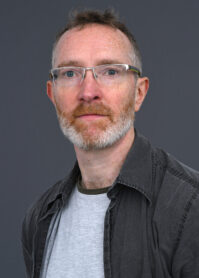
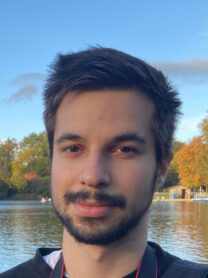
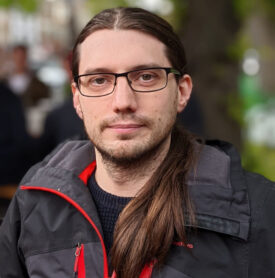
WaveFunctionCollapse (WFC) is the popular name for a family of algorithms that combine machine learning and constraint solving for procedural generation on discrete graphs. WFC was developed and popularized in 2016 by Maxim Gumin, building on past research on texture synthesis and model synthesis. While the reference implementation of WFC is written in C# and uses the AC-4 algorithm, WFC has since been implemented in dozens of programming languages and environments, with variations in both the constraint solving and machine learning components.
WFC is a versatile algorithm, and has been implemented in environments spanning from a general-purpose constraint solver to a tiny retrocomputing fantasy console. Both the machine learning and constraint solving aspects of the system can be varied, which has made for a wide scope for potential research. Many recent publications have been exploring mixed-initiative co-creation applications, combining WFC with neural networks, and other applications. Further, as an algorithm that produces understandable results while being within the technical capabilities of individual developers, it has seen some popularity among artists and game developers.
In this tutorial, we will briefly demonstrate how to implement WFC, how to apply it to a few standard problems, and how to extend it to novel or underexplored possible areas of application.
Max Kreminski – Santa Clara University

Isaac Karth is a researcher in artificial intelligence and game design, with a particular focus on procedural generation. He currently works at Liminal Entertainment, creating procedural generation systems that enable non-programmers to create compelling experiences. His academic work has been published at venues including FDG, AIIDE, and DiGRA. Isaac holds an MFA in Arts and Technology from the University of Texas at Dallas and a PhD in Computational Media from the University of California, Santa Cruz.
Max Kreminski is a researcher in artificial intelligence, human-computer interaction, and creativity, with a particular focus on the design, development, and evaluation of AI-powered creativity support tools. Their research has won awards at FDG, AIIDE, and ICIDS, and has been covered in outlets including New Scientist, The Verge, and Polygon. Max is an Assistant Professor of Computer Science and Engineering at Santa Clara University and holds a PhD in Computational Media from the University of California, Santa Cruz.
Statistical Forward Planning (SFP) is a group of robust and general AI techniques that use a simulation model to adaptively search for effective sequences of actions in various games and other problems characterised as Markov Decision Processes (MDPs, including Partially Observable – POMDPs).
SFP methods can operate without the need for prior training and can handle complex and dynamic environments. This tutorial will provide a tour of SFP from basics to finer points, complete with pointers to Python code (e.g. in OpenSpiel and other repositories). We will cover a number of powerful SFP algorithms including Monte Carlo Tree Search (MCTS), Rolling Horizon Evolutionary Algorithm (RHEA) and Monte Carlo Graph Search (MCGS), as well as handling partial observability with Information Set MCTS. We’ll also cover:
- the relationship between SFP algorithms and Counterfactual Regret Minimisation (CFR)
- incorporating policy and value functions (similar to AlphaZero)
- efficient exploration functions for flat reward landscapes
- handling combinatorial action spaces
Demonstrations will show these algorithms can play a variety of video games surprisingly well and provide insights into their working principles and behaviours. The tutorial will be suitable for those with no experience of SFP, but we also expect MCTS veterans to gain some fresh insights. We will conclude with a discussion of some of the most exciting challenges in the area.
James Goodman – Queen Mary University of London
Marko Tot – Queen Mary University of London

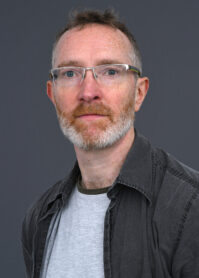

Simon is a full professor in the School of Electronic Engineering and Computer Science at Queen Mary University of London (QMUL) where he leads the Game AI Research Group. He was previously Head of School of EECS at QMUL, and prior to that, Head of School of Computer Science and Electronic Engineering at the University of Essex. He recently spent two years as a research scientist / software engineer in the Simulation-Based Testing team at Meta, applying simulation-based AI to automated testing.
Simon was the founding Editor-in-Chief of the IEEE Transactions on Games and co-founded the IEEE Conference on Games, was VP-Education for the IEEE Computational Intelligence Society and has served in many conference chair roles. His current research is focused on simulation-based AI and sample efficient optimisation.
James Goodman is in his final year of PhD on statistical forward planing in multiplayer board games. He is currently focusing on working with tabletop games designers to use AI techniques in TAG to test their games during the design phase. He indecisively has first degrees in Chemistry, Mathematics and History, and an MSc in Computational Statistics and Machine Learning from UCL.
Marko Tot is a PhD student at Queen Mary University of London and a part of the GameAI research group. He is the recipient of the Microsoft Research PhD Studentship in 2020, working on combining Learned Forward Models with Statistical Forward Planning methods, with a current focus on state representation in Monte Carlo Graph Search.
Procedural Content Generation via Knowledge Transformation (PCG-KT) is a framework covered in a newly-accepted Transactions on Games paper for organizing approaches that transform (typically learned) knowledge about a game to approximate another game or one that does not exist. Conceptual Blending, Domain Adaptation, and Transfer Learning are all existing approaches to this task. In this tutorial, we will overview PCG-KT and give practical, hands on experience through provided code of conceptual blending, domain adaptation, and transfer learning approaches to it. We will end with the opportunity for participants to propose and discuss possible future applications or research projects in this area.

We will be presenting works focusing on controllable content generation via Reinforcement Learning (“Learning Controllable Content Generators”) and Quality Diversity Algorithms (“Illuminating Diverse Cellular Automata Level Generators”), applied to both 2D and 3D (“Learning Controllable 3D Level Generators”) domains. We will contextualize this research in terms of related work in PCG and in terms of open-ended learning loops involving learning generators and players in parallel (including a recent line of work in Unsupervised Environment Design). In our hands-on demonstration, we will look at code implementing some of the key mechanics of each paper, show some example use-cases of the “control-pcgrl” code-base, and look at how it can be extended to support other domains.
Zehua Jiang – NYU Game Innovation Lab

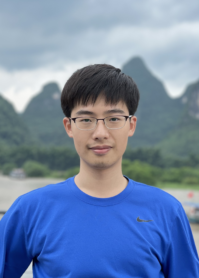
Sam Earle is a 3rd year PhD student at NYU Game Innovation Lab with Professor Julian Togelius. He studies RL and evolutionary methods for procedural content generation and open-ended learning environments.
Zehua Jiang is a 1st year PhD student at the Game Innovation Lab. He studies RL for PCG and the use of evolution and generative models for cybersecurity applications.
industry day

Inspired by the last in-person IEEE CoG in 2019, we are including an Industry Day in our program. Central at this day is an industry-academia exchange facilitated by industry keynotes, industry talks, and an exhibition of demos, software, and hardware. Importantly, this day is free. Admission is limited by the capacity of our venue. Priority will be given to industry presenters and exhibitors.
schedule

Industry – Day 1
8:30 Opening
9:00 Industry Keynote 1
10:00 Break
10:15 Industry Talks
11:15 Break
11:30 Panel 1
12:30 Lunch
13:30 Industry Talks 1
14:30 Industry Talks 2
15:30 Break
15:45 Panel 2
17:00 Industry Keynote 3
18:00 Reception

Academic – Day 2
9:00 Keynote
10:00 Break
10:30 Tutorials
12:00 Lunch
Game Technical Community Meeting
13:30 Paper Session
15:00 Break
15:30 Paper Session
17:00 Students & Young Professionals Event

Academic – Day 3
9:00 Keynote
10:00 Break
10:30 Paper Session
12:00 Lunch
13:30 Paper Session
15:00 Break
15:30 Paper Session
17:00 Posters & Demos
19:00 Banquet

Academic – Day 4
9:00 Best of CoG
10:00 Break
10:30 Competition
12:00 Lunch
13:30 Paper Session
15:00 Break
15:30 Paper Session
17:00 Closing